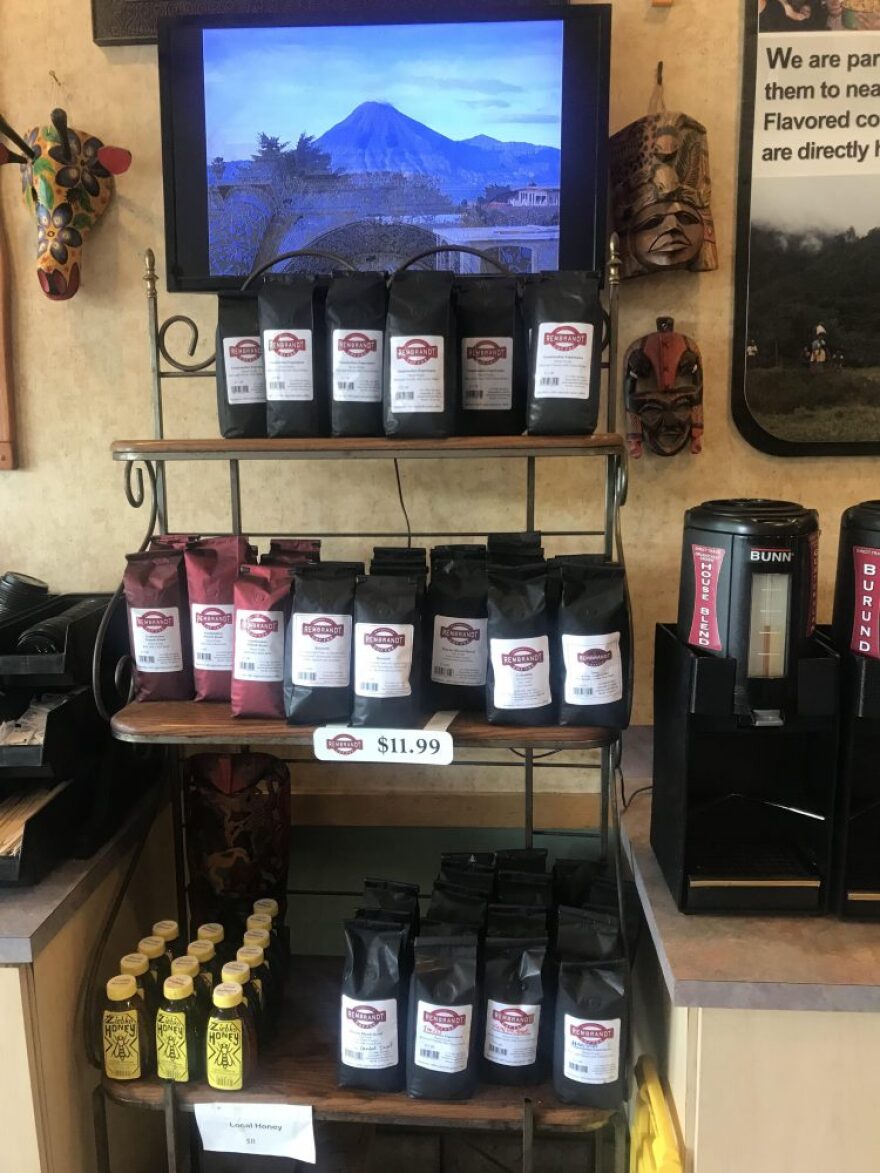As you stroll through the aisle of your local supermarket, you will find coffee from companies including Folgers and Maxwell House.
If you look a little closer, you'll see coffee from local roasters including Strongtree Organic Coffee Roasters and Sweetwater Organic Coffee. We spoke with four roasters in Gainesville to have them explain their different processes of roasting the perfect blend of coffee.
Making your morning cup of joe is not as easy as it sounds. Local roasters understand the importance of every sip; from your first to your last.
Bret Larson is the founder and co-owner of Opus Coffee, alongside his brother, Ken Larson.
"I fell in love with Ethiopian coffee, and then slowly I started enjoying coffee more, tasting it, and now I need it every day of my life," Bret Larson said.
He didn't like coffee when they first opened stores.
Ken Rembert is the owner of The Bagel Bakery. Rembert started roasting for his restaurant and even made his own coffee brand called Rembrandt Coffee, after taking a trip to Guatemala.
"I wanted to have my own brand," Rembert said. "One of the things we did is meet the guys who roast a lot of coffee there. So when I met them, I said if you guys organize and ship me the coffee, I'll buy a roaster and start roasting it for my store."
There are three different roast levels of coffee: light, medium, and dark.
Larson said the way you roast coffee can impact the taste and the smell: "In a lot of the lighter coffees, you'll get more citrus notes. Maybe it tastes like tangerine, lime or blueberries. There's a whole spectrum."
Rembert said he roasts about four times a week for his restaurant: "We'll do one darker roast level, and a couple of lighter roast levels."
Most roasters buy their coffee beans through a couple of different ways, including importers, direct trade, auctions, and wholesales.
Sweetwater Organic Coffee CEO Tripp Pomeroy decided to buy his coffee beans through co-ops, "which is, in our case, buying coffee directly from small-scale coffee farmer cooperatives. We extend our industry-leading terms of trade: we pay promptly; the price is negotiated face-to-face, our Co-op with their Co-op, so it's direct. Then we bring it down to Sweetwater to roast."
Roasters buy from many different countries, including Brazil, Ethiopia, Sumatra, and Kenya.
Nora Edison is the Vice President of Strongtree Organic Coffee Roasters. Edison and her husband and business partner Chris Neumann try coffee about six times before deciding whether or not to buy the coffee beans.
"Our latest Guatemalan farmers just showed up at our door here, and had their coffee with them and pitched us, and sampled us; we loved it, we bought it," Edison said. "We don't really put limits on who we buy it from."
The roasters sell to companies including supermarkets like Ward's, Lucky's and local businesses in town. Opus Coffee roasts about 90 percent of its coffee to hospitals, and you'll only find its coffee shops inside hospitals.
"The hospital has their own clientele; they have doctors and nurses," Larson said. "I think too many times in the hospital, you have people who want an oasis from everything that's going on. Everybody in the hospital drinks coffee."
Edison will sell to anybody who wants really good coffee they can trust, including personal orders: "Lucy is an Irish literature professor in New York City. She loves our Christmas blend from eight years ago; she decided 'This is the one for me, I'm not giving it up!'"




